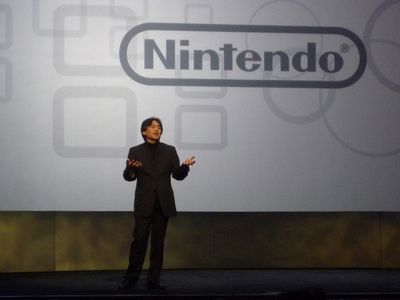- Qualcomm Launches Snapdragon 4 Gen 2 Mobile Platform
- AMD Launches Ryzen PRO 7000 Series Mobile & Desktop Platform
- Intel Launches Sleek Single-Slot Arc Pro A60 Workstation Graphics Card
- NVIDIA Announces Latest Ada Lovelace Additions: GeForce RTX 4060 Ti & RTX 4060
- Maxon Redshift With AMD Radeon GPU Rendering Support Now Available
Tech News
SplashTop Hacked, Functions on Non-ASUS Motherboards
When Splashtop was first released with a few ASUS motherboards last fall, I for some reason became interested immediately. Part of the reason might be attributed to the fact that I’m a Linux user to begin with, the other reason might be thanks to its uniqueness. Whatever it was though, might have been for good reason, as the technology has progressed quite a bit since then.
Well it seems like I wasn’t the only one who enjoys the technology, as some hackers on the Phoronix forums have found a way to milk the OS off of an ASUS motherboard and run it on others. It of course won’t be run off a flash chip embedded onto the motherboard, like the real technology, but it can be installed or accessed via a virtual machine, if it suits your fancy.
What’s the point of it all? Who knows, as more robust distros already offer ways to be run off of thumb drives. That’s not what’s important, though. There’s a good chance that the folks at DeviceVM are not jumping for joy all over this one, but cheers to the folks who made this happen.
 Credit: Phoronix |
One of the developers that has been working on compromising SplashTop has been Kano, a Debian developer and the leader of the Kanotix distribution. Kano has written scripts (available from the forums) that will then extract the SplashTop files, properly format a USB flash device for booting, and then install the needed files to the flash media.
Cuil Off to Rough Start, Considered Laym by Most
Alright, so I’m not the biggest fan of Google to begin with, but what’s up with the immediate “Watch out Google!” statements whenever a new search engine rolls around? I think it’s obvious that Google would have to have really serious competition before they would even spend a moment to remotely care. Where Cuil is concerned, I think the only emotion Google would express at this point is joy.
Cuil (pronounced ‘cool’, hence the foolish news title) came out just the other day, touting itself as the ‘world’s biggest search engine’. That I might believe, but in order for something like that to matter, a search engine also needs to deliver relevant results, one area where Cuil fails. Some queries to deliver reasonable results, but ‘Techgage’ shows our Cedega 6.0 article first… before the actual home page. That article performed well when first published, but still ranks under our top 300… so the fact that it shows up first is a little odd.
Searching for ‘Cuil’ delivers even more humorous results, as it nowhere lists its own site. It does appear, though, that the more popular a website, the better the chance that it will be listed first. Test out ‘Yahoo!’, ‘Google’, ‘Intel’ or ‘UEFA’, for example. Overall though, I do like the goals and design of the site, but it certainly seems to have a ways to go before it’s taken seriously.
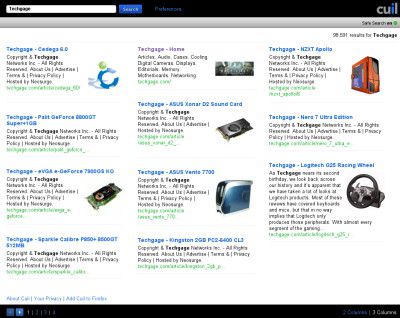
The Internet has grown exponentially in the last fifteen years but search engines have not kept up-until now. Cuil searches more pages on the Web than anyone else-three times as many as Google and ten times as many as Microsoft. Rather than rely on superficial popularity metrics, Cuil searches for and ranks pages based on their content and relevance.
NewEgg Preparing to Launch Canadian Counterpart
Living in Canada can avail unique experiences for a tech-head. It’s hard to read forums and not see some reference to NewEgg, which of course has never offered shipping to Canucks. With a recent move, they even stopped accepting Canadian credit cards for products that were to be shipped to the US, so their Canadian support has been less-than-stellar up to this point.
Well, that changes soon. The company have just launched a Canadian version of the website, although it’s simply a splash page at this point, with a note that it will launch sometime this year. I’m curious as to whether or not they will actually have warehouses in Canada or not, but given the fact that there has always been demand for a Canadian NewEgg, chances are they need one.
Though there are many large e-tailers in the US, NewEgg still remains the second-largest. In Canada, there is much less competition, and NCIX.com and a few smaller ones have been the leaders for quite some time. How NewEgg’s entry into the Canadian market will affect them remains yet to be seen, but it’s no doubt got them thinking.
Despite that, all I can say about the situation right now is, ‘finally’.

We define an excellent shopping experience to be one that combines unsurpassed product selection, abundant product information and fair pricing. With thousands of tech products in stock and numerous tools to help customers make informed buying decisions (detailed specs, how-to’s, customer reviews and photo galleries), we have earned the loyalty of tech-enthusiasts and novice e-shoppers alike.
SteelSeries Acquires Ideazon
Ideazon, creators of some of the most unique gaming keyboards on the market, has just been acquired by SteelSeries, yet another developer of higher-end gaming peripherals. Both companies share similar goals, and develop similar products, so the acquisition seems to make a lot of sense.
SteelSeries themselves have grown rapidly in popularity over the past few years, and their products have been well-received, including on our own pages. They also sponsor gaming teams left and right, and their dedication to deliver high-quality peripherals is apparent. How this acquisition will affect either company is yet to be seen, but Ideazon’s line-up doesn’t seem to be changing much in the near-future.
It appears that Ideazon will remain stationed in North America, while SteelSeries remains in Copenhagen, Denmark, with other offices also found in Asia.

CHICAGO, July 29, 2008 – The leading manufacturer of innovative professional gaming gear, SteelSeries, today announced its acquisition of certain assets in Ideazon, Inc., the North American-based developer and manufacturer of gaming peripherals and technologies. This acquisition further strengthens SteelSeries’ peripheral technology and will help expand the company’s broad support within the gaming community.
Intel’s Atom vs. VIA’s Nano – Performance & Power Consumption
It’s not often that we report on CPU competition between Intel and someone other than AMD, but that happens now. Our friends at PC Perspective have two platforms on hand, Intel’s Atom and VIA’s Nano, and pits them against each other to see which one comes out on top. The results might just surprise you.
Performance aside, the biggest issue here lays with Intel’s implementation of Atom. They don’t offer an open platform, and restrict what components can be used. It was their decision to omit PCI-Express, which means consumers are stuck with old-school PCI GPUs. VIA, on the other hand, welcome PCI-Express cards. That’s the kind of support we need, and Intel needs to seriously re-evaluate their position on keeping a locked platform, especially after these initial Nano results.
In their tests, PC Per found the Nano to out-perform Atom in almost all regards. Granted, the chip was operating at 1.8GHz, compared to Atom’s 1.6GHz, but some differences seen go beyond the scope of such a minor increase. Atom wasn’t a total loss by a longshot though, as it was exceptional where power consumption was concerned. In the end, it comes down to a classic trade-off, power consumption or raw performance. If anything, it’s really good to see VIA as serious competition in this market now. To come out of nowhere (relatively) and immediately compete with Intel’s latest product, is a huge accomplishment.
 Credit: PC Perspective |
For an incredibly inexpensive and low power part, the VIA Nano L2100 CPU was very impressive from a performance perspective. Using just 20 watts or so of power at load the Isaiah architecture running at 1.8 GHz could handle our media encoding, our PCMark05 general purpose tests and even a little gaming.
NVIDIA Launches Mainstream 9500 GT
Summer. Time for fun, beaches, warm weather, and new GPUs! Well, new GPUs show face all the time, so it’s not much of a surprise when a new one gets launched, but the latest entrant from NVIDIA might be worthy of attention if you are looking for a capable budget option. The 9500 GT is low-end in most regards, but it’s price currently hovers around ~$75, which is at least $35 less than a low-priced 9600 GT.
The new card features 314 million transistors, clock speeds of 550MHz/1400MHz, 32 stream processors, and a 128-bit memory bus width. Our friends at HotHardware have taken the new card for a spin, and though it didn’t come close to competing with the 9600 GT, it competed nicely with the 8600 GTS of yesteryear, which happened to debut at a much higher price.
Their results conclude that the 9500 GT is not going to prove to be a killer gaming card, although it is very capable. The 9600 GT delivered results almost twice as high as the 9500 GT in many of the tests, so the extra ~$35 – $40 it would take to equip yourself with one of those instead might be justified if you are at all planning to game regularly. But still, the lower power consumption, lower temps, size and of course, the price, might just make the card a real winner for some.
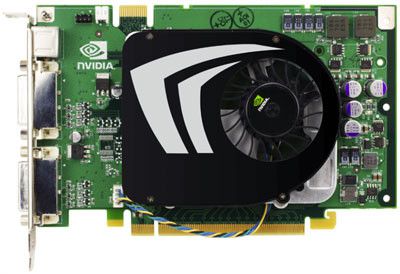 Credit: HotHardware |
NVIDIA’s new GeForce 9500 GT is the company’s latest weapon in its arsenal of sub-$100 graphics cards but don’t let the relatively low price fool you. Of course the card won’t offer the same level of 3D performance as current high-end, more expensive products. However, its feature set is comparable to just about anything else on the market. And its power consumption is nice and low as well.
Get Involved In The Techgage Community
We at Techgage are proud to announce the addition of a site feature that makes it easier than ever to get involved in our growing community of knowledgeable PC enthusiasts: the “Latest Forum Posts” ticker. The ticker appears in the far-right column of every page of our site, beneath the “Site Search” feature. Now, it’s more convenient to keep tabs on our forum than ever before! Simply click on a post heading to visit the thread and become part of the discussion.

Also, if you’ve got a knack for writing and are interested in contributing your talents to our site, check out the recruitment notice at the bottom of the About Us page.
Gateway Shifts Focus to Others to Sell Their Products
Gateway has been gaining momentum in the PC market for a while now, but despite that, they have decided to scrap their own personal online sales entirely in favor of allowing e-tailers and retailers to have all the fun. Their current retailer list includes Best Buy, Office Depot, NewEgg, CompUSA, Circuit City, Costco, Tiger Direct, HSN, OfficeMax and Wal-Mart.
The move is an interesting one, but it’s apparent that many people didn’t go to their site to ultimately purchase their products anyway. When I bought the XHD3000 a while back, I was forced to purchase it through Best Buy, due to their absolute lack of support in Canada. So it’s no real surprise to me that their online sales presence is now gone.
On the other side of the coin, moving to this model may make more sense in the future as they are focusing 100% on that method of sales, which may entice other e-tailers and retailers to sign on board with their products. If recent notebooks and displays are anything to go by, then any retailer has a good reason to begin carrying their products, if not already.
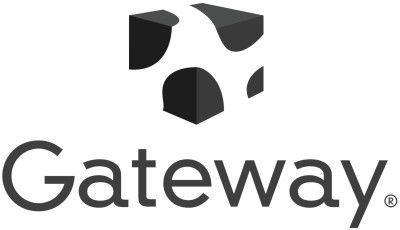
“We believe that our retail and e-tail partners offer consumers the best, easiest and most effective way to purchase Gateway products,” said Mark Hill, Acer Group U.S. General Manager. “Customers can rest assured that they will continue to get the award-winning products and outstanding technical support they’ve come to expect from Gateway for the last 23 years.”
AMD Tops the SPECweb2005 Charts in Both 2P and 4P
It’s no secret that in the past two years, AMD’s processor line-ups have been in the spotlight for all the wrong reasons. But, their products are still undeniably high-performance parts, and they prove it once again today with new reports that they now hold two top spots on SPEC’s web2005 benchmark.
SPEC is a company that produces advanced benchmarks for many various test types. web2005 is built around stressing a systems ability to handle common web server traffic, such as e-commerce, banking and support tickets. AMD now holds the top spot for both 2P and 4P systems, with their 2356 and 8356 Opteron processors, respectively.
The higher-end of the two is the 8356, found inside an HP ProLiant DL585 G5. The machine scored 43,854, beating the second-place system, using an Intel X7350, by 1,071 points. The jaw-dropping rig features 16 cores operating at 2.31GHz, 64GB DDR2-667 RAM and ran Linux, using the ext2 filesystem.

Demonstrating its superior ability to handle the strenuous and increasing demands placed on today’s high-traffic Web-based businesses, AMD (NYSE: AMD) today announced that the power- and cost-efficient Quad-Core AMD Opteron processor Model 2356 and Quad-Core AMD Opteron processor Model 8356 now hold the top x86 web performance records for both 2P and 4P servers, as measured by the SPECweb2005 benchmark.
Steve Jobs Clears Health Issues with Reporter
In a conversation with New York Times’ reporter Joe Nocera, Steve Jobs discussed his current health off-the-record. The issue of Jobs’ health has been a troubling question for investors and speculators for the past few months over the concern that his rare form of pancreatic cancer may have returned, putting the company at possible risk.
Nocera admits in his post – though he is unable to give specific details – that Jobs’ condition is more than a “common bug” that certain Apple spokespeople have used in their dismissals when questioned about the chairman’s health, but it is not as serious as the pandemonium was making it out to be, and certainly not life-threatening.
Steve Jobs is said to have made the call when he was outraged about Nocera’s comments that Steve’s cancer may have resurfaced. He reiterated that his health was a private matter, and seems to be of the belief that he doesn’t have a reason to disclose it. Though there is some debate whether or not exposing possible health issues will affect the company and its stock price, given Steve Jobs’ role and influence, he does have some say to privacy.

After receiving multiple statements from Apple’s press relations that simply echoed the company’s official position that Jobs’ health “is a private matter,” the New York Times‘ Joe Nocera received a personal phone call from Steve Jobs that appears to have settled some of the doubts about his physical condition.
Apple Seeds iPhone 2.1 to Developers, Adds New Features
Apple fans deterred from the iPhone 3G because of some of the device’s shortcomings will be happy to know that the company has handed out a beta build of the iPhone’s 2.1 software. The new release will bring improvements to the phone’s GPS capabilities and introduce the push notification service for developers.
The iPhone’s CoreLocation service adds support for directional GPS and the ability to track speed, both of which are ingredients for a turn-by-turn application. These new features will theoretically give Apple, and third-party developers the power to create more accurate and more feature-rich applications.
The push service, which was formally announced at WWDC 2008, will allow developers to send notifications to iPhone handsets without running background processes, Apple’s solution to save battery life and increase performance on the phone. The service was slated for a September release, so the firmware will likely be made available to customers by then.
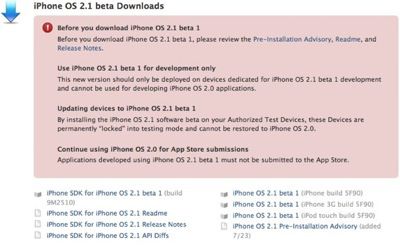
Those with hands-on access to the beta 2.1 code at Gear Livenote that Core Location can now recognize the cardinal direction of an iPhone with GPS as well as its velocity, both of which are ingredients necessary to providing turn-by-turn directions.
Separately, AppleInsider has also confirmed that Apple is implementing a rough version of its background push notification service in the 2.1 firmware.
Yahoo! to Take DRM Music Servers Offline
Last Wednesday, Yahoo contacted customers telling them that the company would no longer provide support for the service, and that customers would no longer be able to play their purchased music after September 30. Microsoft made a similar move to turn off its MSN Music service earlier this year, but postponed the shutoff to 2011.
Yahoo advised customers to make an effort to burn their protected music to a disc, effectively removing the copy protection, but such an action reduces audio quality and leaves customers with an impaired version of the purchased product. In an ultimate slap in the face, Yahoo reminds customers they can still (re)purchase their favorite songs from the newly-partnered Rhapsody download service.
The fear that your music can suddenly stop working certainly illustrates one of the major problems with DRM. The fact is, the users bought music from these services purely out of convenience, and turning them off enrages loyal customers and makes them even more unlikely to buy music in digital form online again. Even though Yahoo isn’t performing as well as it could, freezing new purchases and keeping the server online would have sufficed.

This afternoon, Yahoo alerted customers of its erstwhile downloadable music store that it would no longer provide support after Sept. 30 (download the cheerful e-mail here). The upshot: starting Oct. 1, said customers won’t be able to revive frozen tracks or move working ones onto new hard drives or computers, because Yahoo won’t be providing any more keys to the songs’ DRM wrappers. But hey, they can always buy MP3 versions from Yahoo’s new partner Rhapsody!
Can Ubuntu Catch OS X in Two Years?
As far as current operating systems are concerned, Microsoft’s Windows is undoubtedly the world-leader when it comes to installations on home desktops. In second place is Apple’s OS X, and in a relatively close third, all Linux distributions. Thanks to Mark Shuttleworth’s deep pockets, and creative marketing, his Ubuntu Linux distro has been growing steadily since its launch in 2004. But can Canonical pull off the ‘impossible’, and out-pace OS X, and eventually Windows?
That’s the idea behind a recent posting at The Register. According to the site, Mark made a comment at the recent OSCON to call on the distro’s developers to put forth a sincere effort to not only catch Apple, but surpass them, in terms of overall quality. The goal? Two years.
As it stands, that’s a lofty goal, but I have little doubt it can be done. However, the fact of the matter is, the reason Linux hasn’t caught on like OS X isn’t because of ugly design, because really, Ubuntu and other popular distros are gorgeous. Rather, the fact that it’s not easy is the reason it hasn’t made a massive impact like it should have already.
When the day comes that the command-line in Linux is left only to the power-users, then the OS will catch on at a rapid pace. Until that time, we cannot just expect everyone to have the patience to learn an entirely new OS than what they are used to, if they need to type in random commands to install software, or get other minute details accomplished.

He also returned to a familiar theme of greater cooperation between disparate projects. Coordination of releases would be beneficial in cases where there are interdependencies, reducing bugs, helping produce a general open-source platform that could bring open source to the attention of the world at large.
Is a Digg Purchase Around the Corner?
The popular social-networking site, Digg, has been around for a while… close to four years. Many sites of such stature don’t normally last a single year before being snatched up, and for big money. Look at MySpace, for example. Paying attention to either TechCrunch or some other web 2.0-watching website will let you know just how often such sites get picked up.
So why has Digg still not been touched? Microsoft has a nice ad deal with the site, and numerous offers have been made, but no deal has ever been completed. Well, if this latest rumor is to be believed, then a sale might be very close, and I suppose it’s absolutely no surprise that the purchaser would be Google.
The sum? $200 million… which seems to be a tad low for a site with such a massive traffic-flow. After all, the likes of Facebook are worth billions, not millions. But, it would still be a nice pay day for Kevin Rose, it goes without saying. I’m personally just getting tired of Google wanting to own everything, but I sure wouldn’t blame Kevin and his crew if he jumped at the deal. Not surprisingly, prospects of how Google might kill Digg are already all over the place. We’ll see where this goes…

The companies are now in final negotiations according to our sources, although it could be a couple of weeks before it closes. And while the major deal points have been agreed on, the acquisition could still fall apart. Microsoft, which was previously interested in the company, may be willing to step back in at a much lower price.
Intel Introduces EP80579 SoC Designs
No official press release has yet been posted, but our friends at HotHardware have the scoop on a brand-new Intel integrated processor family, called EP80579. This launch isn’t so much for just the processors, however, but rather entire system-on-a-chips, meaning that key components, such as the memory controller, I/O hub and processor core are located on one chip.
These SoCs are designed for special environments, such as security, storage, communications and other industrial applications. They are designed to be efficient, powerful, small and capable of withstanding temperatures between -0°C – 70°C for the commercial models, and -40°C – 85°C for the industrial models.
Eight different models will be launched immediately, six for commercial application and two for industrial, and range between 11.5W – 21W, and also feature processor frequencies of 600MHz – 1.2GHz. You may wonder where this fits in when Atom is already on the market, but don’t confuse the fact that these new processors are lower-powered and designed exclusively for specific scenarios. Atom is designed more for the regular consumer, as it is featured in many feature-packed MID’s and other such devices.

In addition to lower-power characteristics and the smaller form factors enabled by the Intel EP80579’s integrated design (in some cases, Intel claims they will lead to platforms that have a 45% smaller board footprint and 34% lower power dissipation), the main benefit of this product line is its native support of Intel Architecture (IA), aka x86.
Rogers Intercepts Personal Searches to Own Service
“Ugh” is about all I can say lately whenever thinking of Rogers, a company that loves pushing their customers’ buttons, because it’s fun, and profitable. After all, there’s a blatant lack of competition up here, so they could easily pull off any stunt they want. Who’s going to choose to go without their cable, Internet, cell phone and possible home phone? Exactly.
We all know about the iPhone plans, which still suck, but is old news. Last night, I found another reason to dislike the company… because they are now intercepting searches. Personally, I never touch the actual ‘Search’ box in Firefox, but rather just use the address bar. Since I try to stay away from Google as much as possible, I have it routed through to Live.com. When I used it last night though, I wound up with an image like the one below.

Ugh. So not only is Rogers taking it upon themselves to inject a message into your browser whenever you are close to hitting your monthly bandwidth quota (it can be argued how much of a problem this is), they are now overtaking your search in order to earn themselves even more cold hard cash. This is truly incredible, but not at all surprising.
This didn’t work on my families PC’s, who do use Google for their searches, so I’m not exactly sure how it works, or who would experience this ‘takeover’. Sure, you can disable this feature, but it’s stored via cookie, meaning once cookies are cleared, this ridiculous ‘feature’ is restored. The worst of it is that when I chose to disable it, using the address bar for searches would land me at the Rogers site again, but with a page error. Ugh. Canada needs a new fierce competitor (well, one to begin with), and soon.
An Ethernet Port On Every Set-Top Box…
…and a chicken in every pot. Or something like that. Intel wants the FCC to mandate that an ethernet port should be included on every cable, satellite, and IPTV set-top box in the United States. The feature would allow set-top boxes to serve as hubs for streaming media content from various other PCs and media servers in the household. However, Ars Technica couldn’t help but notice that Intel itself might have a financial interest in such a move, since Intel is a major supplier of ethernet chipsets.
According to Ars Technica’s article, two representatives from Intel corporation visited the FCC headquarters to promote the idea of requiring ethernet capability on set-top boxes through a presentation they delivered. Set-top boxes are currently required to provide an IEEE 1394 data bus connection, and though the article gives no specifics on the purpose of including IEEE 1394 connectivity, it doesn’t seem like a far stretch to include the more ubiquitous ethernet port on the list of required features.
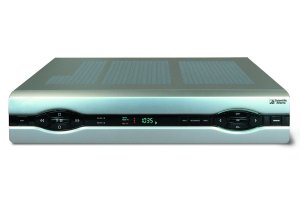
On the other hand, the FCC seems to be in an open devices kind of mood, given all the requirements they’re demanding of Sirius/XM in exchange for a merger, so we’ll just have to wait to see where this Intel request goes.
Windows Home Server Power Pack Update Now Available
Many users of Microsoft’s Windows Home Server software were affected by numerous bugs that many considered to impair their products’ usefulness, such as the data corruption bug and the lack of 64-bit support, but Power Pack update which we previously reported on has finally fixed those issues, and more.
Other fixes introduced include “backup of home server Shared Folders, improvements to remote access, more efficient power consumption and better performance.” Hopefully, this release will prove to be more stable and better received with users. The blog post goes on to say that hardware partners will update their products to the new version, and HP will release a software update that will include the Power Pack and extra functionality.
_2.jpg)
The team is pleased to announce that Windows Home Server Power Pack 1 has been released to manufacturing (RTM) and is now available on the Microsoft Download Center!
The English version is available now and German, Spanish and French versions will be available on the Download Center soon. Windows Home Server customers who don’t download it on their own will receive Power Pack 1 via Windows Update in August, and the new Chinese and Japanese versions will RTM in August, too.
Ubisoft Caught Distributing No-CD Crack for Own Game
Someone at Ubisoft somehow managed to publish a patch for their Rainbow Six Vegas 2 game at Fileforums.com, apparently to help users who were having trouble with copies of the game that were downloaded from the Direct2Drive service. Hilarity promptly ensued.
As it turns out, the file that was made available was a no-CD crack created by the “Reloaded” group, which is usually associated with pirating games, including Ubisoft’s own. Users launched hex editor programs to check the file’s contents, and verified that the crack was created from Roloaded, but the actual origin of the file and how it was uploaded remains unknown.
In the unlikely, but possible chance that the crack was published by a rogue employee, I’ll tip my hat to you. Even if the true motives have yet to be discovered, more games should adopt a means to avoid using CD checks to combat piracy, because they are simply ineffective and the people who were unfortunate enough to have problems with their downloads should be reimbursed in some way.

Bizarrely, Ubisoft seems to have been caught distributing a ‘no-CD’ crack produced by a pirate group for one of its own games.
A user named Twingo on the site Fileforums.com pointed users in the direction of a crack made available by Ubisoft for the PC game Rainbow Six Vegas 2.
Intel Quarterly Report Reveals 25% Profit Increase
While AMD seems to be having bad luck as of late, Intel shows off the company’s growing health. In its quarterly report, the company announced that profits rose 25%, beating previous expectations. Only Intel’s gross margin report was slightly disappointing, which only managed to land within the company’s target range. With everything said and done, everyone seems to agree that things are going well for the chip maker.
A major concern for a while was the impact on profit of the low-end PC market, which is one of the reasons why this news is somewhat surprising. Ashok Kumar, a CRT Capital Group analyst, held the concern that demand may have topped and the higher sales of inexpensive, low-end processors could have damaged their success, which clearly wasn’t the case overall.
I believe that more than anything, the earnings report shows that the technology industry is showing growth even in the recessive economy. With the other big name companies ready to release their quarterly reports within the next week, including Google, Microsoft, and Apple, we’re sure to see other signs of profit.

Intel Corp. had a quarter of ups and downs. It was shocked when the Federal Trade Commission announced that it would be formally investigating whether the company, which controls roughly 80 to 90 percent of the worldwide microprocessor market, abused its dominant position in an illegal fashion.
Despite this down, there were numerous ups. Amidst a war of words with NVIDIA, Intel forged ahead with its upcoming discrete graphics offerings, set to take on NVIDIA and subsidiary ATI, owned by its chief microprocessor competitor, Advanced Micro Devices (AMD). Intel also was pleased to see a strong Centrino 2 launch with many partner products, after concerns stemming from some initial glitches and delays.
AMD CEO Steps Down
Things have certainly been rough for AMD as of late. Today, AMD’s CEO, Hector Ruiz, stepped down from his position at the company. There is no way of knowing whether or not his departure is a result of the company’s performance, but after Jerry Sanders’ and Phil Hester’s leave, you have to wonder what the plan is for the future at the company.
With all of that said, I, as well as many others want to see AMD truly step up in the consumer CPU industry. While AMD probably won’t leave us any time soon, with Intel all but dominating the space, the migration back over to Intel CPUs will leave the company in a hard position to compete with.

The CEO of chip maker Advanced Micro Devices Inc. is stepping down.
Hector Ruiz had been just the second person to lead AMD after company founder Jerry Sanders. He’ll be replaced by the chip maker’s No. 2 executive, Dirk Meyer.
Microsoft Employee Reveals Bungie Plans for a New Halo Game
In an interview with Microsoft’s Don Mattrick, MTV was able to squeeze out conformation that Bungie is indeed developing a new Halo game that is separate from the previously announced Halo Wars real time strategy game, and Peter Jackson’s mysterious project. Foregoing rumors seem to agree that this new game will not involve the Mater Chief as the main protagonist, but nothing is concrete yet.
It is not certain whether or not this Halo game is the secret reveal which was prevented from being disclosed by Microsoft, so it remains possible that Bungie fans could see two games from the eminent development studio.

Here’s something to add to all the E3 drama this week about Bungie Studios‘ canceled/postponed/hyped debut of a new game…
In an interview shot for MTV News on Tuesday, Microsoft’s head of Xbox business Don Mattrick, confirmed to me that Bungie is indeed working on a new “Halo” game of some sort for Microsoft.
Apple Apologizes for MobileMe Outages, Offers 30 Days Free
In an attempt to respond to customers upset about the initial MobileMe outages and services that were left offline until they were finally fixed, Apple emailed an apology to current MobileMe and .Mac customers. In the email. Apple said, “the .Mac to MobileMe transition was a lot rockier than we had hoped but everything is now up and running,” and mentioned how they misused the term “push” in respect to the 15-minute wait time for changes to email, calendars and contact to sync to the “cloud.”
Subsequently, the company has offered a 30-day extension to the subscription period for current customers, no doubt to make up for the weekend-long instability. However, there was no mention of incorporated real push functionality at a later date in the email, but it is theoretically possible right now at the cost of system resources, because both Windows and OS X don’t have the core push functionality built in.
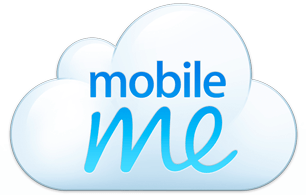
Apple’s launch of MobileMe last Friday was bumpy with many users not being to login at all, while others had difficulty getting anything to sync properly. Apple on Wednesday recognized those problems and is offering an olive branch to all MobileMe subscribers.
Sony Announces New PS3, Movie Downloads, Single Sign-On, and More
At Sony’s E3 press conference today, the company released new information for the entire PlayStation product line, with news about the PS3, PSP and PS2. First, the PS3 will be sold in a new SKU, which some outlets consider replace all of the existing PS3 consoles, an 80GB model which will sell at $399. The PlayStation store now features movie downloads from Sony Pictures, Fox, MGM, Lions Gate, Warner, Disney, Paramount, Turner, Funimation. Content can be bought online from a PC, and synced to the PSP.
New information about Home, which will offer “game-themed rooms,” and what Sony calls “SSO” – single sign-on for the PlayStation Network, were also released. Infamous, MAG, DC Universe Online, and God of War III (in the form of a pre-rendered trailer) were also shown off.
Finally, a new PSP bundle will be released in the form of a new “Entertainment Pack.” The package will include a silver PSP slim, 1GB Memory Stick, National Treasure 2, Ratchet & Clank: Size Matters, and a voucher for Echochrome. The bundle will retail for $199 and go on sale this October.
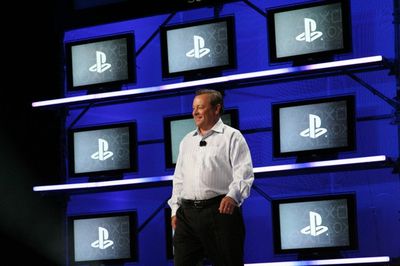
Nintendo Announces Three New Games, New Hardware
Though Nintendo’s E3 conference may have not held as much flare as Microsoft’s, the company did unveil three new games for the Wii: Animal Crossing, Wii Sports Resort, and Wii Music. Clearly in an attempt to create more demand in the casual market, Wii Sports Resort and Wii Music focus on bringing your Miis in new situations, which including jet skiing, and, well.. playing the drums.
New peripherals were showed off as well, the previously announced WiiMotion Plus, which adds 1:1 movement sensing to the Wii remote, and WiiSpeak, which is a speaker for voice communication that sits atop the Wii’s sensor bar.
A lot of hardcore Nintendo fans were left disappointed at the company’s ignorance to their own dedicated fan base, and the lack of an impressive or surprising showing. Even games that were heavily rumored to make a showing, such as New Super Mario Bros. 2, Nintendogs 2, and Kid Icarus for the Wii, were suspiciously absent.
